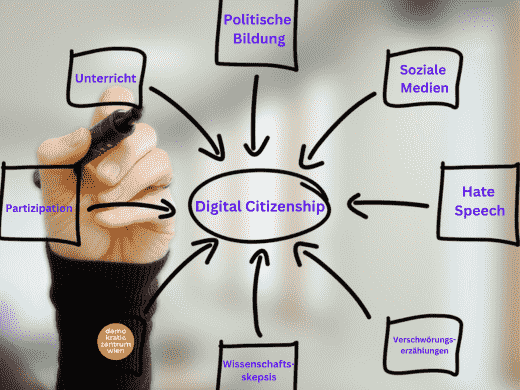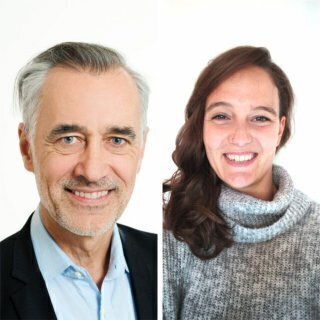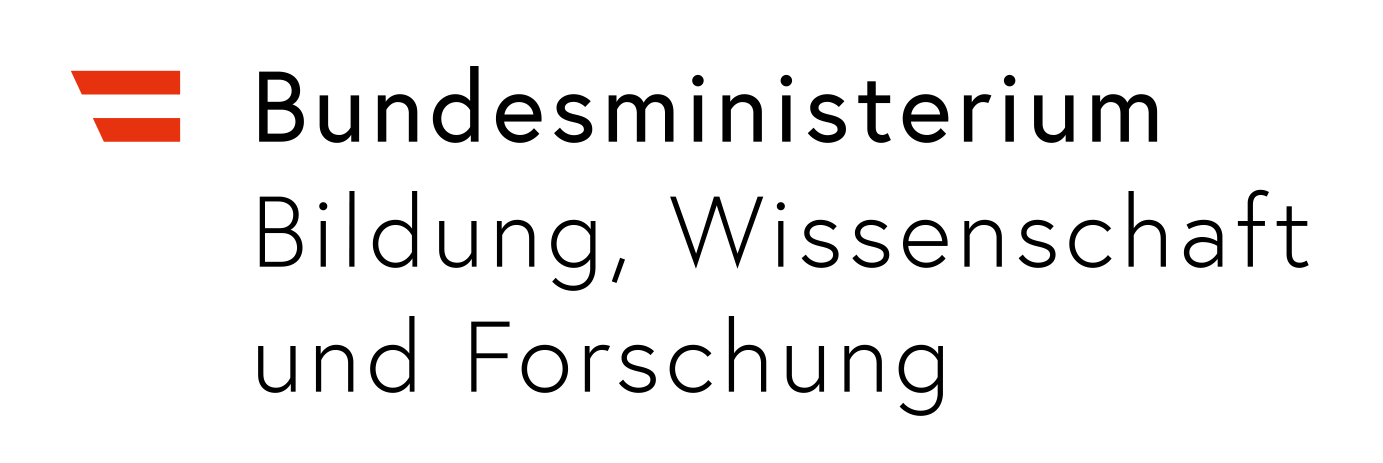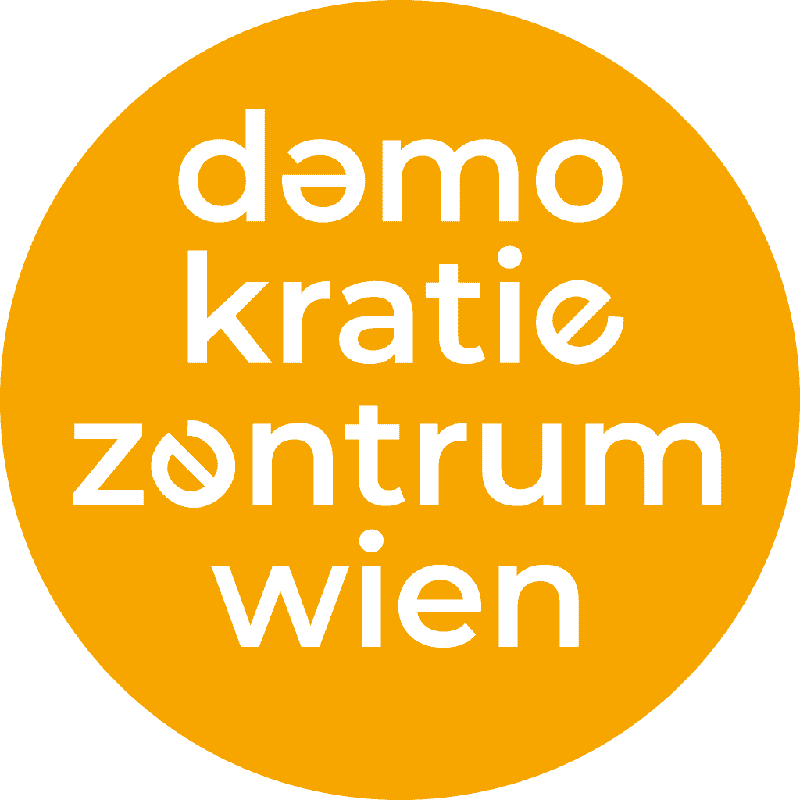


Digital Citizenship – Keeping informed against threats to democracy online
Democracy Centre Vienna
Univ.-Prof. Dr. Dirk Lange and Mag.a Lea Hintenberger
Informazioni
Informazioni generali sul corso
Welcome to the MOOC „Digital Citizenship – Informed against threats to democracy online“!
What can you expect from this course? This MOOC is a training course for teachers, other professionals working in the educational field and interested participants in general on the topic of digital citizenship. With the help of this course, you will obtain a sound overview of online and social media in the context of democracy and civic education. Special focus is placed on the topics of hate speech, conspiracy narratives and skepticism towards science.
Another DiCiMOOC (Digital Citizenship - Competence in Democracy and Education) deals with the topics of fake news and manipulative technologies on the internet.
Who is this MOOC for? This course is primarily addressed to teachers and multipliers, who on the one hand would like to expand their competences and knowledge in this subject area, and on the other hand would like to gain a sound basis for integrating this topic into their own educational work.
Contenuto
Contenuto del corso
By completing the MOOC "Digital Citizenship - Informed against threats to democracy online", you will gain a deeper understanding of online and social media in relation to different levels of democratic societies. The Internet and social media represent an essential scope of action in today's society as well as a widely used source of information and a multitude of communication options.
In order to introduce the importance of online and social media for a democratic society, both the potential of the internet to promote as well as to undermine democracy are reflected upon. The main topics are always approached from the perspective of society as a whole as well as from the specific perspective of the internet. The focus is on essential definitions and the reflective use of online media.
This MOOC aims at two outcomes: On the one hand it serves as further education and training for all interested teachers, educators, and multipliers. On the other hand this course provides materials and tips for educational work. These should help to approach the topic in one's own lessons.
The course participants' self-perception as responsible citizens on the Internet and their individual judgment skills are to be strengthened and the knowledge they acquire made available for their own future pedagogical and educational work.
Obiettivi del corso
By completing this MOOC, the participants’ digital citizenship will be strengthened and the theoretical and didactic basis for their own educational work in this area will be expanded. As part of the course the participants gain knowledge and competences in the following areas, among others:
- Developing an awareness of one's own responsible digital citizenship
- Reflection on tendencies on the Internet that promote and endanger democracy from a participation theory perspective
- Knowledge of key terminology and well-founded basic information in the context of hate speech, conspiracy narratives and skepticism towards science
- Identifying features of conspiracy narratives and associated mentalities
- Significance of the digital media public sphere(s) in the context of hate speech, conspiracy narratives and skepticism towards science
- Reflection on the main topics from the perspective of (school) educational work
- Ability and willingness to address this range of topics in their own educational work
Conoscenze pregresse
No special knowledge is required for this MOOC.
Procedura del corso
The MOOC consists of three lessons which are related in content and methodology. Altogether they form a basic program on digital citizenship with a special focus on the topics hate speech, conspiracy narratives and skepticism towards science.
Each lesson includes (a) video(s), informational texts, tasks, practice examples, forum discussions, didactic tips or suggestions and a final quiz. Lesson 1 states the thematic basis and is the most extensive lesson of the course. Lessons 2 and 3 build on lesson 1 and foster in-depth understanding (with a lower workload).
Lesson 1: Digital Citizenship: Participation and hate speech online
Workload: Approx. 5 hours
This lesson aims to create a fundamental basis for the topic. The aim is to reflect on the tendencies of online media to promote and inhibit participation from a participation theory perspective and to introduce the topic of hate speech. This lesson is the introductory and therefore the most comprehensive lesson of this course.
Lektion 2: Conspiracy narratives – A challenge in society and digital media
Workload: Approx. 3 hours
In this lesson, building on the content of lesson 1, an approach is made to the main topic of conspiracy narratives. It introduces conceptual definitions, identifying features and the importance of online and social media.
Lesson 3: Skepticism towards science – interest, skepticism, digital media and democracy
Workload: Approx. 3 hours
The last lesson of the course deals with scientific interest and skepticism towards science in Austria. In addition to fundamental questions, the current demands and challenges of (school) educational work are also reflected upon.
Certificato
For actively participating in the course you will receive an automatic certificate which includes your name, the course name as well as the completed lessons. We want to point out that this certificate merely confirms that you answered at least 75% of the self-assessment questions correctly.Licenza
Unless otherwise indicated, the content offered in the course is provided under the following license: CC-BY-NC-SA Demokratiezentrum Wien. The content may be used for educational and other non-commercial purposes, on condition that the following name is cited as the source: Demokratiezentrum Wien. External linked materials, videos and such may be exempted from the Creative Commons License. Please note the applicable regulations.Course Picture: Edited version of the following picture: LTDatEHU, https://pixabay.com/de/photos/technologie-klassenzimmer-bildung-1095751/ (last online access on 25.04.2022). Please note that this image is exempt frpm the course´s CC licencse and is subject to the Pixabay license.
Istruttore del corso

Univ.-Prof. Dr. Dirk Lange and Mag.a Lea Hintenberger
Univ.-Prof. Dr. Dirk Lange is a university professor for didactics of civic education at the University of Vienna. He has headed the Democracy Centre Vienna since 2018 and is director of the Institute for Didactics of Democracy at the University Hannover. For many years, Dirk Lange was federal chairman of the German Association for Civic Education and director of the Agency for Adult and Continuing Education in Lower Saxony. He has varied international experiences, among others as an Honorary Professor at the University of Sydney (Australia) and as a Visiting Professor at the University of Zurich (Switzerland). His central research object is civic consciousness. His current work focuses on inclusive citizenship education, digitalization, civic education and global citizenship education.
Mag.a Lea Hintenberger is a research associate at the Demokratiezentrum Wien. She graduated from the University of Vienna with a teaching degree in history, social science and civic education as well as physical education and sports. She worked in civic education and completed an occupational training in political and media didactics (Institut für Kulturdidaktik, Vienna). After teaching at the Gymnasium am Augarten (Vienna) she has been working as a research associate at the Democracy Centre Vienna since 2021. Her tasks include the conception, coordination and implementation of workshops, seminars and further education programs on political education for different target groups and the supervision of projects on democratic political education for adults in the e-learning area.
Accesso e iscrizione Attualmente: 258 Partecipanti
Gratuito per tutti € 0.00
Partner
A MOOC developed und created by Demokratiezentrum Wien (Democracy Centre Vienna).
The Democracy Centre Vienna is an independent scientific institution dealing with democracy research and democracy education. Our empirical and theoretical research furthers academic knowledge, strengthens democratic political discourse and transfers outcomes into educational opportunities. Through subject-oriented and emancipative civic education, we promote active citizenship and participation in politics.
Content-related cooperation:
Jan Paul Möller, BA studied sociology and history at the University of Potsdam in Germany and is currently studying sociology and political science at the University of Vienna. He worked as a tutor at the Chair of General Sociology and as a research assistant at the Chair of Social Structure Analysis at the University of Potsdam.
Mel Christian Arnecke, BA MA is a political scientist who has been working at the Demokratiezentrum Wien since 2023. Apart from a scientific study on the Viennese youth's ideas on conflict, he is tasked with the design and realisation of workshops for adolescents and young adults. Some focal points of these programmes are, for instance, the familiatisation with democratic principles and the prevention of discrimination or conspiracy narratives. Besides his work at the Demokratiezentrum, he started to work as a Contributing Author for the Second Austrian Assessment Report (AAR2) of the Austrian Panel on Climate Change (APCC) after earning his degree from the University of Vienna in early 2024.
Natalie Ziyi Scherer, BA is currently studying Political Science at the University of Vienna. She has been working as a student researcher at the Demokratiezentrum Wien since mid-2022 and engages an activist in various socio-political contexts. At the Demokratiezentrum Wien she works on EU Projects and is primarily involved in developing materials for REACT (Recognising Extremism and Conspiracy Theories).
With support from

